Related Research Articles
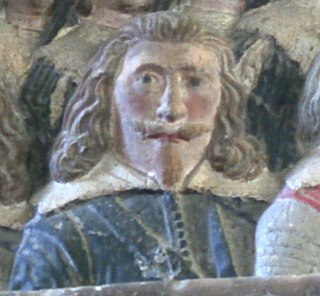
William Strode was an English politician who sat in the House of Commons variously between 1624 and 1645. He was one of the Five Members whose impeachment and attempted unconstitutional arrest by King Charles I in the House of Commons in 1642 sparked the Civil War, during which he fought on the Parliamentarian side.

Sir Orlando Bridgeman, 1st Baronet, SL was an English common law jurist, lawyer, and politician who sat in the House of Commons from 1640 to 1642. He supported the Royalist cause in the English Civil War.
Sir Roger Twysden, 2nd Baronet, of Roydon Hall in Kent, was an English historian and politician who sat in the House of Commons at various times between 1625 and 1640.
Sir Thomas Bowyer, 1st Baronet was an English politician who sat in the House of Commons at various times between 1614 and 1642. He supported the Royalist cause in the English Civil War.
Sir Richard Onslow was an English politician who sat in the House of Commons at various times between 1628 and 1664. He fought on the Parliamentary side during the English Civil War. He was the grandson of one Speaker of the House of Commons and the grandfather of another, both also called Richard Onslow.
John Crew, 1st Baron Crew of Stene was an English lawyer and politician, who sat in the House of Commons at various times between 1624 and 1660. He was a Puritan and sided with the Parliamentary cause during the Civil War. He was raised to a peerage as Baron Crew by Charles II after the Restoration.
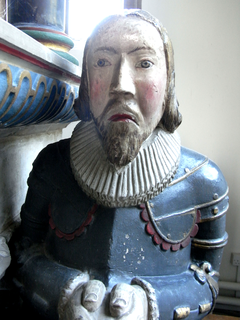
Sir Francis Popham (1573–1644) of Wellington, Somerset and Littlecote, Berkshire, was an English soldier and landowner who was elected a Member of Parliament nine times, namely for Somerset (1597), Wiltshire (1604), Marlborough (1614), Great Bedwin (1621), Chippenham 1624, 1625, 1626, 1628–29), and for Minehead (1640–1644).

Sir John Northcote, 1st Baronet was an English politician who sat in the House of Commons at various times between 1640 and 1676. He supported the Parliamentarian cause in the English Civil War.
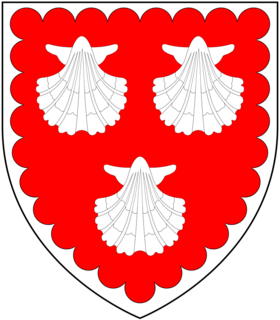
Sir Walter Erle or Earle was an English landowner and politician who sat in the House of Commons at various times between 1614 and 1648. He was a vigorous opponent of King Charles I in the Parliamentary cause both before and during the English Civil War.
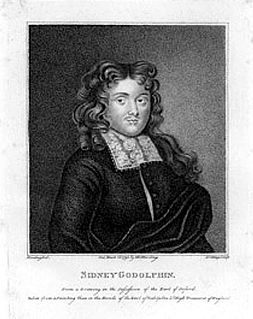
Sidney Godolphin was an English poet, courtier and politician who sat in the House of Commons between 1628 and 1643. He died fighting in the Royalist army in the English Civil War.
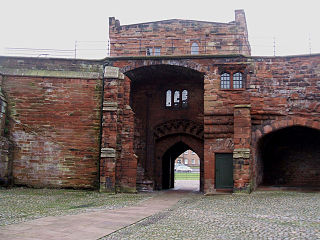
Sir George Dalston (1581–1657) of Dalston Hall, Cumberland was an English politician who sat in the House of Commons of England between 1621 and 1643. He supported the Royalist cause in the English Civil War.
Sir Peter Heyman (1580–1641) was an English politician who sat in the House of Commons variously between 1621 and 1641.
Sir Robert Crane, 1st Baronet of Chilton, Suffolk and of Buckenham Tofts, Norfolk, was an English politician who sat in the House of Commons variously between 1614 and 1643.
Sir Neville Poole was an English politician who sat in the House of Commons variously between 1614 and 1648. He supported the Parliamentarian side in the English Civil War.

William Mallory of Studley Royal, Yorkshire was an English politician who sat in the House of Commons variously between 1614 and 1642. He supported the Royalist side in the English Civil War. His father, John Mallory, was also an MP of Ripon.
Sir Francis Knollys (1592–1643) was an English politician who sat in the House of Commons variously between 1624 and 1643.
Sir Edward Rodney was an English politician who sat in the House of Commons at various times between 1621 and 1642.
Henry Tulse was an English politician who sat in the House of Commons between 1640 and 1642.
Sir Poynings More, 1st Baronet (1606–1649) was an English politician who sat in the House of Commons at various times between 1624 and 1640.

Sir Alexander Temple was an English landowner and Member of Parliament. He was born at Stowe House in 1583 and knighted in 1603. During his life he held many public offices, including MP for Sussex. He was buried in Rochester Cathedral.
References
- ↑ History of Burley, Rutland - Pedigree of the Finch family The chart shows Thomas had a son John, with no further information. Thomas was MP for Winchelsea immediately before this John Finch.
- 1 2 Willis, Browne (1750). Notitia Parliamentaria, Part II: A Series or Lists of the Representatives in the several Parliaments held from the Reformation 1541, to the Restoration 1660 ... London. pp. 229–239. Some sources attribute the 1624 Winchelsea seat to John Finch recorder of Canterbury and later Speaker
- ↑ Robert E. Ruigh The Parliament of 1624: politics and foreign policy
- ↑ 'House of Commons Journal Volume 2: 11 February 1643', Journal of the House of Commons: volume 2: 1640-1643 (1802), pp. 961-963. Date accessed: 13 May 2011
| Parliament of England | ||
|---|---|---|
| Preceded by Sir Thomas Finch Edward Nicholas | Member of Parliament for Winchelsea 1624 With: Edward Nicholas | Succeeded by Roger Twysden Ralph Freeman |
| Vacant No parliaments summoned 1629–40 Title last held by Sir William Twysden, Bt Ralph Freeman | Member of Parliament for Winchelsea 1640–1642 With: Nicholas Crisp 1640 William Smith | Succeeded by William Smith Second seat left vacant |